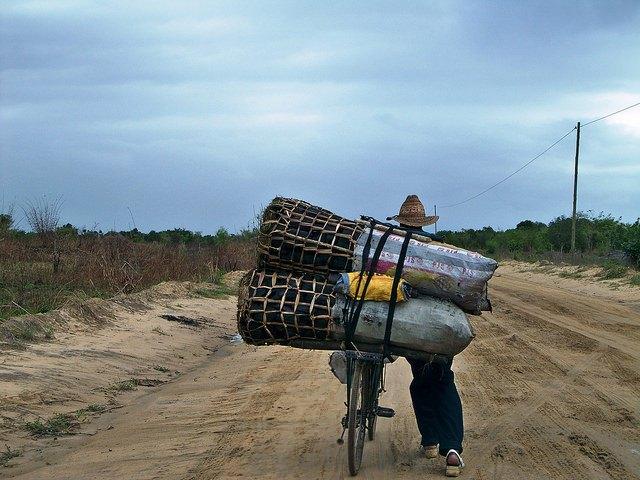
“The impacts and risks posed by climate change highlight the need for action,” the World Bank says on its website, in a section explaining its progress on climate change.
But according to a report issued late last week, the World Bank is financing initiatives that accomplish quite the opposite.
Programs including the introduction of new fossil fuel subsidies, weak policy support for renewables, the undermining of environmental regulations, and a resulting increased risk of deforestation are just some of the ways in which the World Bank is accused of funding programs that are in sharp contrast to its rhetoric stating that any fight against climate change goes hand-in-hand with poverty reduction.
The study, conducted by the Washington, D.C.-based NGO Bank Information Center (BIC), evaluated the World Bank’s $15 billion Development Policy Operations loans and economic development program.
BIC’s researches zeroed in on four countries in which the World Bank implemented these programs. In Egypt, Indonesia, Mozambique and Peru, BIC that incentives for clean-energy investments had indeed launched in recent years. But the researchers concluded that the World Bank's funding programs actually wound up undermining any progress in transitioning these countries to a lower-carbon economy.
Many NGOs and intergovernmental agencies, including the World Bank, have long touted renewable-energy technologies such as wind and solar as a means to expand energy access to citizens who aren't connected to a regional or national grid. For many of the world’s poorest citizens, access to energy comes in the form of dirty fuels such as kerosene, charcoal or even animal dung.
To that end, the World Bank’s Development Policy Operations completed its work largely by helping to fund private-public partnerships (PPPs) to launch programs that the private sector could not or would not finance alone.
But BIC claims such PPPs were overwhelmingly fossil fuel projects in the four countries it studied, and even included coal investments in Indonesia and Mozambique.
Indonesia’s largess from the World Bank included 4,800 megawatts of coal-fired power plant capacity, complemented by the financing of three coal transport railways on the islands of Borneo and Sumatra — regions already suffering deforestation due to the country’s booming palm oil industry. Meanwhile, only one hydropower plant received World Bank funding. And no “climate-smart” renewables projects such as solar or wind power installations were funded by the World Bank in the island nation of 250 million people.
Peru, another country of focus within BIC’s analysis, did not fare much better or worse (depending on one’s perspective).
BIC accused the World Bank of becoming a driver of deforestation in Peru, due to the funding of projects such as a liquid petroleum gas pipeline, a 500 MW diesel power plant, and 26 new oil and gas concessions in the country’s Amazon rain forest. Clean-energy projects, however, were minuscule. They included a 200 MW hydropower plant. And based on its location, hydropower plants can contribute to deforestation in Peru, the BIC pointed out. The World Bank also funded two energy-efficient street light installations in the South American country.
While the BIC was far more tactful and elegant in concluding this report, it wraps up the study by essentially telling the World Bank to put its money where its mouth is on sustainable development.
The BIC urged the World Bank to stop funding any projects that contribute to rather than mitigate climate change. Furthermore, the organization asked the global financial lender to establish a more robust framework, with greater transparency, as it evaluates potential energy projects in developing countries.
Such guidelines, the BIC insisted, should include parameters such as climate change assessments that help these nations reach the goals to which they agreed at the COP21 talks in Paris; an unequivocal end to fossil fuel subsidies; low-carbon financial incentives that go beyond feed-in tariffs; forest protection that projects both the environment and local citizens; and an assurance that these programs strengthen local governance instead of weakening these governments’ regulatory authorities.
Image credit: CGIAR/Flickr

Leon Kaye has written for 3p since 2010 and become executive editor in 2018. His previous work includes writing for the Guardian as well as other online and print publications. In addition, he's worked in sales executive roles within technology and financial research companies, as well as for a public relations firm, for which he consulted with one of the globe’s leading sustainability initiatives. Currently living in Central California, he’s traveled to 70-plus countries and has lived and worked in South Korea, the United Arab Emirates and Uruguay.
Leon’s an alum of Fresno State, the University of Maryland, Baltimore County and the University of Southern California's Marshall Business School. He enjoys traveling abroad as well as exploring California’s Central Coast and the Sierra Nevadas.














